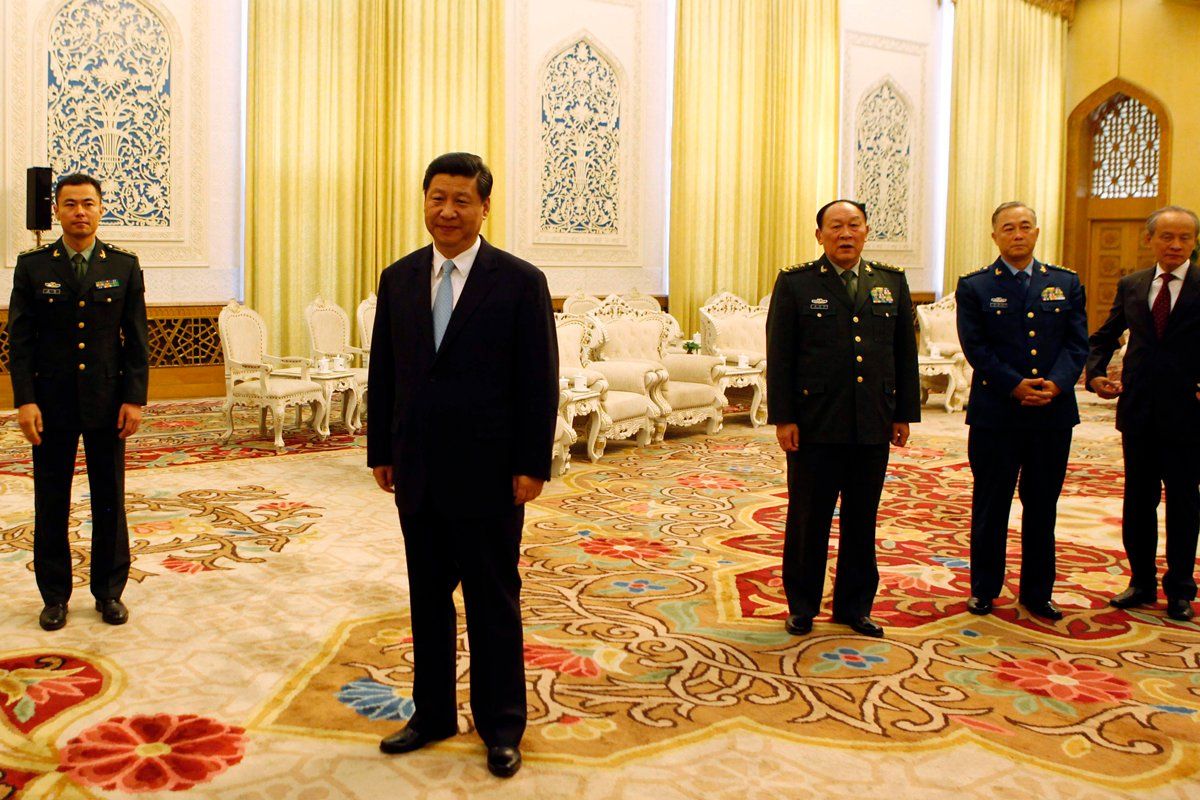
Rage is all the rage. As we all know, radical Muslims are enraged about blasphemous videos and cartoons—so much so that an American ambassador to a country liberated by the United States was murdered by a howling mob in Libya.
I worry about that. I worry even more about this administration's lame response to it. But perhaps we should all worry the most about a very different kind of rage: the Chinese rage that takes the form of a hyperventilating nationalism.
Another American ambassador recently had an encounter with Chinese rage. Fortunately, he was unharmed. Still, if I were Gary Locke—the U.S. ambassador in Beijing—I certainly would not have enjoyed being surrounded by 50 Chinese-nationalist protesters chanting: "Down with U.S. imperialism! China will win!"
You may well wonder what the protesters were on about. The answer is a group of tiny uninhabited islands, called Senkaku in Japan and the Diaoyu in China. There are five in all, plus three rocks, and their total surface area is less than five square miles.
Sounds absurd, right? A bit like Canadians mobbing U.S. embassies over the ownership of the Alaskan islands of Chichagof and Baranof, which, if maps were neat, would be part of British Columbia. But before you zone out, let me remind you that some very big wars have been fought over some pretty small places. A dispute over the ownership of Bosnia and Herzegovina was what started World War I. Ground zero for World War II was Danzig/Gdansk and a thin strip of West Prussia.
The historical record suggests that the Diaoyu/Senkaku islands were the property of imperial China until the Japanese annexed them after their defeat of China in 1895. Administered by the United States after 1945, the islands were handed back to Japan in the early 1970s. Some reverted to their prewar private owners, the Kurihara family. But neither the People's Republic of China nor Taiwan accepted this arrangement.
The Japanese government's recent decision to purchase the islands is just the latest in a series of perceived affronts to Chinese national pride. The protesters who mobbed Ambassador Locke on Sept. 18 were milling around outside the Japanese Embassy when they spotted his America-flagged limo. Theirs was one of a spate of anti-Japanese protests in Beijing, Guangzhou, and Shenyang.
The bloody history of the 1930s and '40s is reason enough to take this kind of thing seriously. At the very least, it can't be good for anyone to have the world's second- and third-largest economies on the brink of yet another trade war. Unlike the inconsequential economies of North Africa, those of China and Japan together account for a fifth of global output. Not only that, but they have become highly interdependent: China is now Japan's largest export market.
Why, then, are the Japanese so intent on a showdown over a bunch of barren rocks? Why does former defense minister Shigeru Ishiba go around saying that to lose these islands would be like "losing the whole country"?
The short answer is that both Japan and China find themselves in the grip of internal political crises that are tempting their leaders to play the tried and tested nationalist card. Prime Minister Yoshihiko Noda is facing imminent elections. He risks being out-jingoed by Ishiba.
Meanwhile, in China, Xi Jinping, heir presumptive to Hu Jintao, reappeared last week—after a mysterious illness—to inform U.S. Defense Secretary Leon Panetta that "Japan should rein in its behavior and stop any words and acts that undermine China's sovereignty and territorial integrity." America should stay out of the dispute, he added. Such tough talk goes down well in China at a time of sagging economic growth and political transition.
Uh-oh. Last week Kurt Campbell, assistant secretary of state for East Asian and Pacific affairs, told a U.S. Senate Foreign Relations subcommittee: "We do acknowledge clearly ... that Japan maintains effective administrative control ... And, as such, this falls clearly under Article V of the [U.S.-Japan] security treaty."
And only last November, in Australia, President Obama described that treaty as "a cornerstone of regional security." In the same speech, he unveiled "a broader shift" away from the Middle East to the Asia-Pacific region. It was, he said, his "deliberate and strategic decision ... to make our presence and mission in the Asia-Pacific a top priority."
We may be about to find out whether this pivot to the Pacific was real or merely rhetorical.
If it proves to be the latter, it will be the turn of the Japanese to be enraged.
Uncommon Knowledge
Newsweek is committed to challenging conventional wisdom and finding connections in the search for common ground.
Newsweek is committed to challenging conventional wisdom and finding connections in the search for common ground.
About the writer
To read how Newsweek uses AI as a newsroom tool, Click here.






